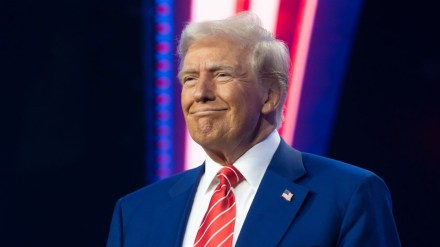During a victory rally on Sunday, President-elect Donald Trump made a bold pledge to release a trove of long-hidden government files regarding the assassinations of prominent figures like President John F Kennedy, his brother Senator Robert F Kennedy, and Civil Rights leader Dr. Martin Luther King Jr. Trump, who is set to take office in the coming days, framed this announcement as part of his broader agenda to increase transparency in government.
Addressing a packed crowd at the 20,000-seat Capital One Arena in Washington, DC, Trump emphasised his commitment to reversing the over-classification of government documents, promising that the disclosure of the remaining files would occur within “the coming days.” His remarks were met with a loud round of applause from his supporters.
Unveiling the Long-Held Secrets of the JFK Assassination
Trump’s pledge to release the records on the assassinations of these American icons focuses primarily on the long-classified documents surrounding the killing of President John F. Kennedy on November 22, 1963. Despite the release of over 95 per cent of the CIA’s records related to the JFK assassination, questions surrounding the event remain unanswered, and conspiracy theories continue to circulate.
During his first administration, Trump made efforts to release the remaining JFK files in accordance with the 1992 Kennedy Assassination Records Collection Act, which set a deadline for full disclosure by 2017. However, national security officials, including former CIA Director Mike Pompeo, pushed back on the release. As a result, Trump released only a portion of the files and delayed the full disclosure until October 2021. President Biden continued a similar approach, withholding certain documents.
Trump Expands His Commitment to Include RFK and MLK Files
In a surprising expansion of his previous pledge, Trump promised to also release documents related to the assassinations of Robert F Kennedy and Dr. Martin Luther King Jr. Though King’s files are scheduled for release in 2027 under the Martin Luther King Jr. Records Collection Act, Trump did not provide details on whether he intends to expedite that process.
The files on Martin Luther King Jr. have been of particular interest, especially due to the FBI’s surveillance of King during the Civil Rights Movement. Many details about the FBI’s activities and information gathered on King have not been made public. King’s assassination on April 4, 1968, in Memphis, Tennessee, and the subsequent investigation, remains shrouded in mystery.
Similarly, Robert F. Kennedy’s assassination on June 6, 1968, in Los Angeles continues to raise questions, especially as new information about the case continues to surface. The release of these records would mark a significant step in addressing the lingering public curiosity and scepticism regarding these high-profile assassinations.
Robert F. Kennedy Jr.’s Role in Pushing for the Release of Files
Trump’s decision to release these files comes in the wake of strong advocacy from Robert F. Kennedy Jr., the nephew of RFK, who has long pushed for the declassification of documents related to his uncle’s assassination. Kennedy, an influential figure within the Trump administration, has been vocal in his stance on transparency, including his support for the full release of JFK, RFK, and MLK assassination files.
Kennedy’s support of Trump’s campaign has been a significant development, as it marks a break from the traditional political establishment. Kennedy’s appointment to the Department of Health and Human Services will further cement his influence within the new administration.
Trump’s First Day in Office
In addition to the anticipated release of classified files, Trump teased other plans to take immediate action upon taking office. On his first day in office, Trump is expected to sign a slew of executive orders to reform areas such as border security, energy policy, and government regulations. The Sunday rally, marking Trump’s first major event in Washington since his election victory, set the stage for what promises to be a bold and transformative presidency.
As the country anticipates the start of Trump’s second term, the decision to release these documents may serve as a symbol of his broader goal to restore transparency and accountability to the government. The move to disclose long-secret files will likely reignite discussions around the events of the 1960s, the role of the US government, and the unanswered questions surrounding these pivotal moments in American history.
